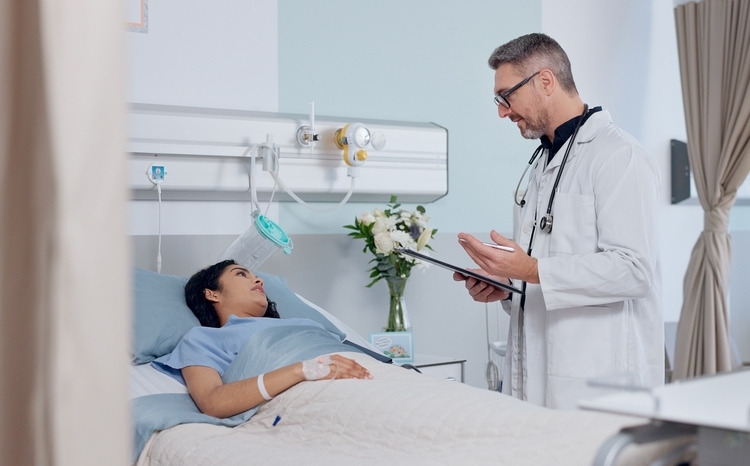Liverpool technology hub awarded £3.5m to explore 5G in healthcare
- 14 March 2018

A Liverpool-based innovation centre has been awarded a £3.5 million grant to explore the opportunities afforded by 5G technology in health and social care.
Sensor City, a research community that supports and funds the development of sensor technology, will lead a consortium of healthcare providers, researchers and businesses to look at how fifth-generation mobile technology can improve patient care.
Specifically, the consortium will look at how 5G wi-fi can be applied to patient monitoring and support, improve communication between healthcare services and help older people live more independently, while addressing the problem of loneliness in older people.
The grant has been awarded to Sensor City under the Department for Digital, Culture, Media and Sport’s (DCMS), 5G Testbeds and Trials programme, a five-year project that will see 5G applied in various scenarios across six test bed sites.
The said test beds will deploy 5G across a range of applications, including smart farming with drones, increasing manufacturing productivity and exploring the capabilities of self-driving cars.
The £3.5 million aided to Sensor City forms a chunk of a total £41 million being invested in the 5G Testbeds programme from public and private sector organisations.
Aiding the project will be a number of public sector health suppliers, the NHS, university researchers and local small and medium-sizes enterprises (SMEs).
Alison Mitchell, executive director at Sensor City, said: “The Government’s 5G strategy for the UK presents a fantastic opportunity to transform the lives of many, especially through health and social care, so I think I speak for all partners when I say we’re excited to see this work unfold over the next five years.”
In the Liverpool test bed, the project will be delivered with the aid of a “leading UK 5G technology vendor”, which will be responsible for deploying a variety of 5G technologies spanning open-source networks, artificial intelligence, virtual reality and internet of things (IoT) solutions.
The project will initially be funded for one year.
Professor Joe Spencer of the University of Liverpool and academic lead for Sensor City, said: “A successful demonstration of a 5G test bed in health and social care will see the development of new, innovative and disruptive technologies that will help to bridge the digital divide in the UK, especially in deprived communities.
“5G wi-fi will not only enable the development of new cost-effective products and services to address real needs and demand, but also bring huge social and economic benefits for the most vulnerable in society, while reducing the demand on hospital-based services.”
While the specifics of 5G are still to be hammered out, this hasn’t stopped vendors and network operators predicting ambitious dates for its arrival.
Ericsson, for example, has pegged 2020 as the year that the next-generation of mobile networks will enter healthcare, based on research the the vendor carried out last year.






4 Comments
So none of this is new paradigms. If you give me more bandwidth and better coverage I can do more. What is there to prove.
Can anyone tell me why a faster network, IP based mobile, will actually enable us to do things that we can’t do now. Maybe it’ll be quicker, maybe coverage will be better, but that’s not a paradigm shift, that’s just speed?
Hi Dave – You’re somewhat right in that The basic advantages of 5G will be much greater data speeds. But with greater speeds also come much lower latency with capacity for a massively increased number of devices when compared to current 4G networks. Which is important with the increase (and expected surge) in IOT devices for Healthcare. Also current 4G response times of 50 milliseconds account for the less-than-instantaneous experience we have when using web-based applications even in a supposedly strong signal area. 5G, by contrast, will boast 1 millisecond end-to-end response times for a broadband-like experience. Which will be important for applications such as AR / VR developments.
It will greatly expand such capacity, both through the opening up of new and less congested frequency spectrum and the smarter use of this spectrum. In layman’s, you’ll always have the right amount of network spectrum for what you’re doing.
It is no exaggeration to state that the world will never be the same place again once 5G is as ubiquitous as 4G or more. As a simple example, with 5G there will be no need for conventional digital or dish TV broadcast service anymore; you will stream any UHD or better content in real time, and download feature-length content in fractions in under 1 sec. That said, bandwidth rather than raw speed, as David alludes to, is probably at least as significant in delivering the infrastructure backbone that will be essential to realising the promise of smart cities and other macro IoT venture. It’s a great era to be living in
Comments are closed.